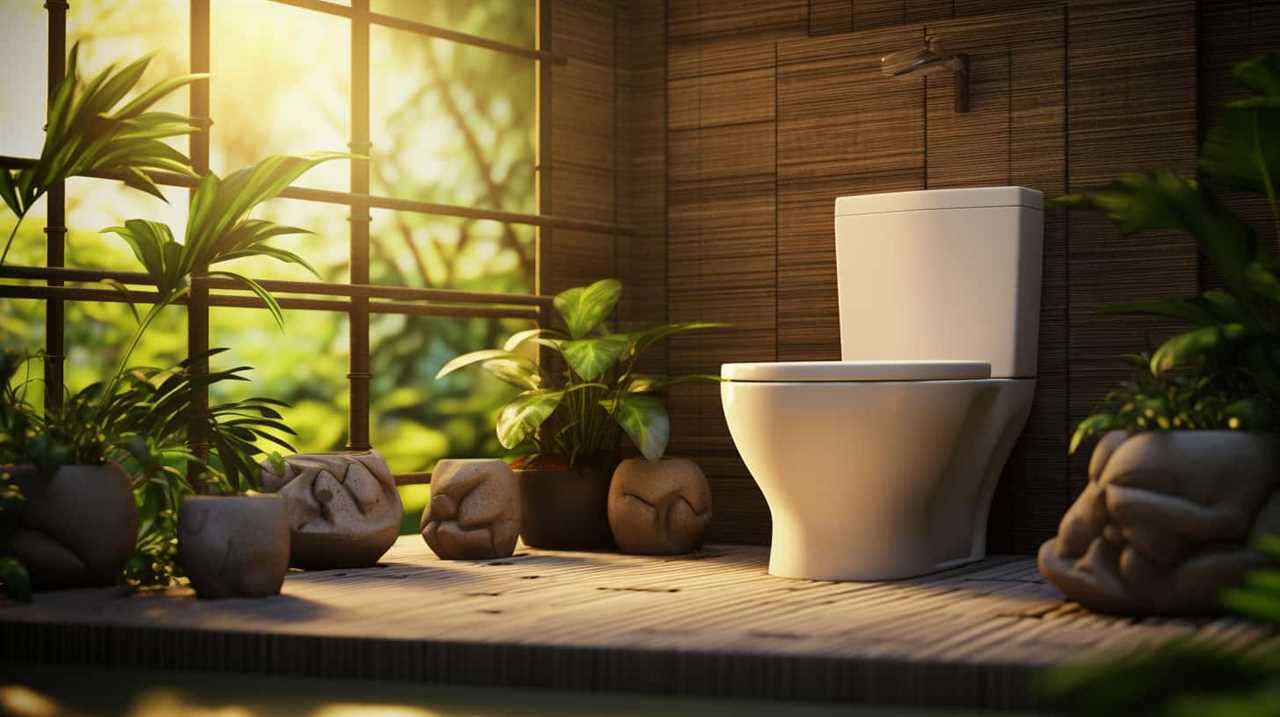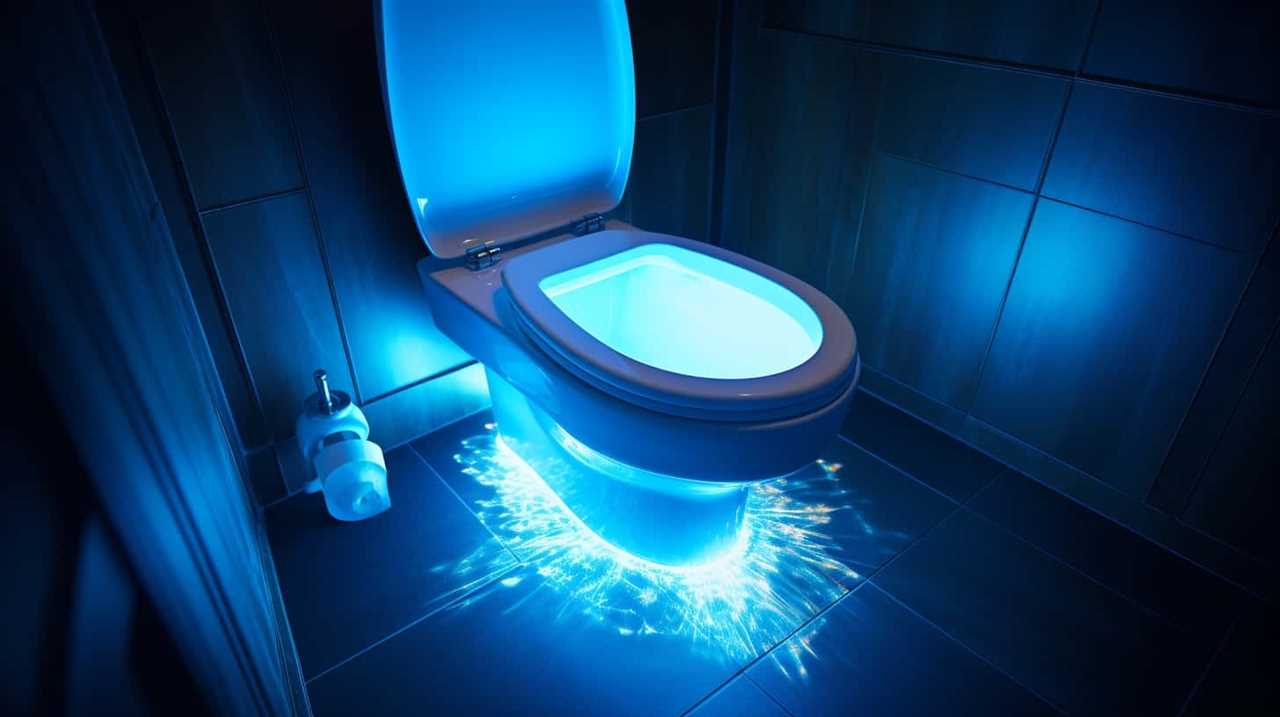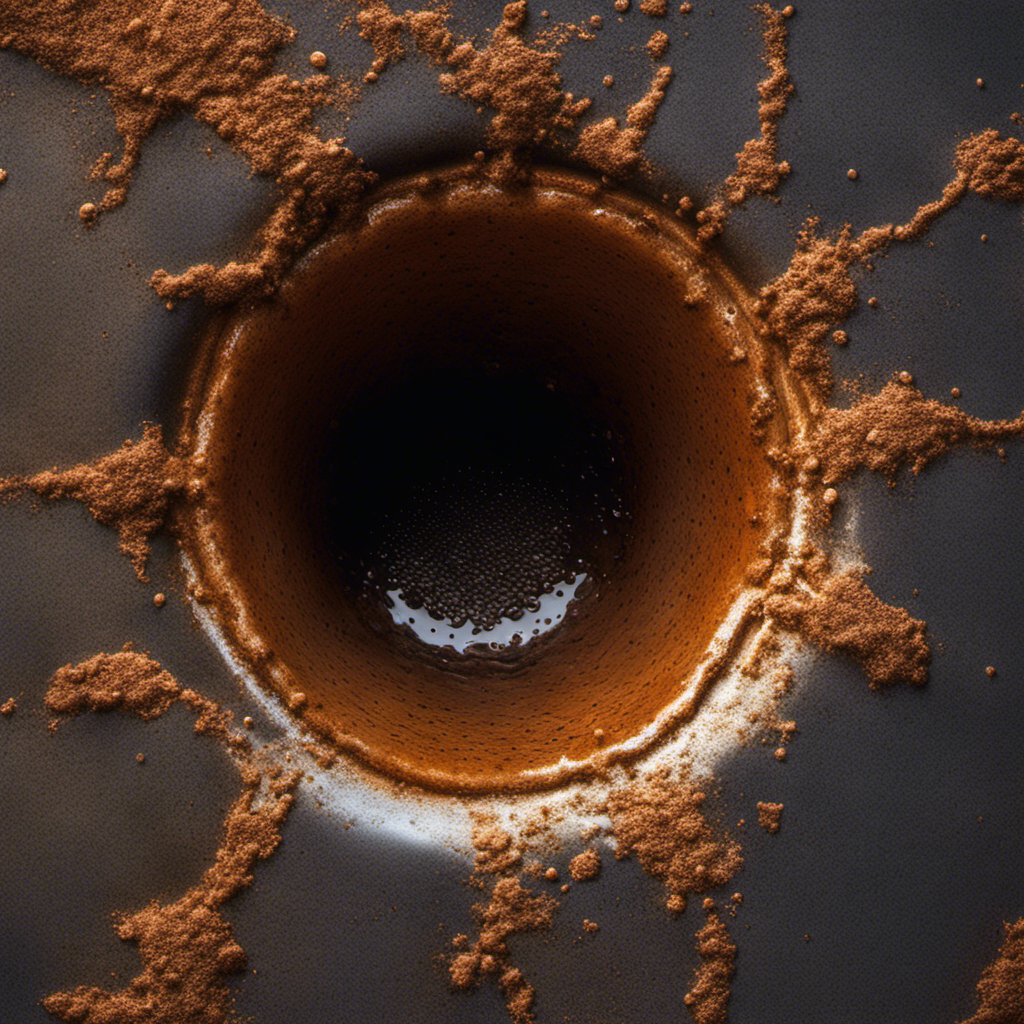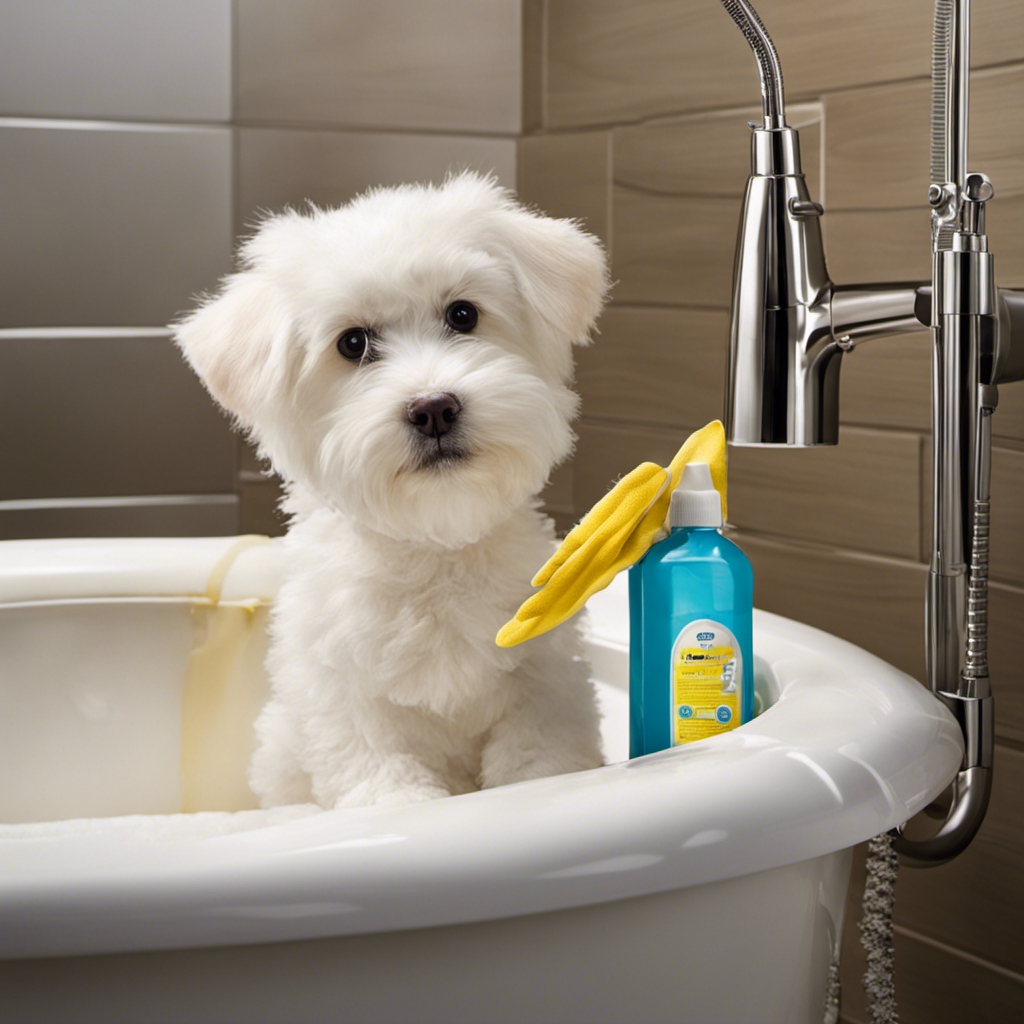Have you ever wondered why we can’t flush a pad down the toilet? It may seem like a simple question, but the answer involves more than just plumbing issues.
In this article, we will explore the environmental impact, wastewater treatment problems, and health and safety risks associated with flushing pads. We will also discuss proper disposal alternatives.
Join us as we unravel the intricacies of this taboo topic and strive for mastery in understanding the reasons behind it.
Key Takeaways
- Flushing pads can cause plumbing issues and clog pipes and sewer lines.
- Pads contain chemicals and microplastics that can pollute water sources and harm aquatic life.
- Flushed pads contribute to marine pollution and can accumulate on beaches, disrupting ecosystems.
- Proper disposal of pads is essential to protect water resources, prevent plumbing problems, and ensure smooth operation of wastewater treatment plants.
Environmental Impact
When it comes to flushing a pad down the toilet, we need to be aware of the double environmental impact it can have. The ecological consequences and water pollution caused by this practice are significant.

Pads are made of materials that aren’t easily broken down in water. When flushed, they can clog pipes and cause blockages in sewage systems, leading to overflow and potential contamination of water sources.
Additionally, pads may contain chemicals and microplastics that can leach into the water, further contributing to water pollution. These pollutants can harm aquatic life and disrupt ecosystems.
To minimize the environmental impact, it’s crucial to dispose of pads properly in designated waste bins. This simple action can help protect our water resources and prevent ecological damage.
Plumbing Issues
To further understand the consequences of flushing a pad down the toilet, let’s explore the plumbing issues associated with this practice.

Clogging concerns are one of the major problems that arise when pads are flushed. Pads are made of materials that don’t easily break down in water, such as plastic and absorbent fibers. These materials can get stuck in the pipes, leading to blockages and restricted water flow.
As a result, toilets may become clogged and require professional intervention to unclog them. Such repairs can be costly, as plumbers may need to use specialized tools and techniques to remove the blockage.
Additionally, if the clog is severe enough, it may cause damage to the plumbing system, leading to even more expensive repairs.
Therefore, it’s crucial to dispose of pads properly to avoid these plumbing issues and the associated expenses.

Wastewater Treatment Problems
Moving on to wastewater treatment problems, we encounter additional challenges caused by flushing pads down the toilet. This irresponsible act not only affects the plumbing system but also creates issues in the sewage treatment process. Here are some key problems that arise:
- Sewage contamination: When pads are flushed down the toilet, they can clog the sewer lines and disrupt the flow of wastewater. This can lead to overflows and the release of untreated sewage into the environment, causing contamination and posing a threat to public health.
- Regulatory compliance: Wastewater treatment plants have strict regulations to follow in order to ensure the proper treatment of sewage. Flushing pads down the toilet can hinder the efficiency of these plants and make it difficult for them to meet the required standards, resulting in non-compliance.
These wastewater treatment problems highlight the importance of responsible disposal methods for pads. Failure to do so can have serious consequences, including health and safety risks.
Health and Safety Risks
As we delve into the health and safety risks associated with flushing pads down the toilet, we discover the potential for serious consequences. Flushing pads can pose significant risks to both plumbing systems and human health. Let’s examine these risks in more detail:
| Risks to Plumbing | Health Hazards |
|---|---|
| Clogging of pipes | Bacterial growth in toilets |
| Blockage in sewer systems | Contamination of water sources |
| Damage to septic tanks | Spread of infectious diseases |
Flushing pads down the toilet can lead to clogging of pipes, as the materials do not easily break down and can cause blockages in the sewer system. This can result in costly repairs and disruptions to the plumbing system. Moreover, the presence of pads in toilet bowls can facilitate the growth of harmful bacteria, which can lead to infections and other health issues. Additionally, the contamination of water sources from flushed pads can pose serious health risks to individuals who consume or come into contact with the contaminated water. Lastly, the spread of infectious diseases can occur when pads are not properly disposed of, increasing the risk of transmission through contact with contaminated surfaces. Therefore, it is crucial to dispose of pads in the appropriate manner to avoid these health and safety risks.

Proper Disposal Alternatives
Now let’s explore the proper disposal alternatives for pads, considering the health and safety risks discussed earlier.
When it comes to pads, it’s crucial to opt for environmentally friendly options that minimize the impact on landfills. Here are three biodegradable alternatives that can be safely disposed of:
- Biodegradable pads: These pads are made from natural materials that break down over time, reducing their impact on the environment.
- Menstrual cups: These reusable cups collect menstrual flow, eliminating the need for disposable pads altogether.
- Cloth pads: Made from washable fabrics, cloth pads are a sustainable option that can be reused multiple times, reducing waste.
Frequently Asked Questions
How Much Water Is Typically Used to Flush a Pad Down the Toilet?
Typically, flushing a pad down the toilet requires a significant amount of water. However, it is important to note that doing so is not recommended due to its detrimental environmental impact.
Can Flushing a Pad Down the Toilet Cause Damage to the Plumbing System?
Flushing a pad down the toilet can cause damage to the plumbing system. The water pressure can lead to clogs and blockages, resulting in costly repairs. Moreover, it has a negative environmental impact as pads are not biodegradable.

Are There Any Specific Chemicals Present in Pads That Can Affect Water Treatment Processes?
There can be adverse effects on the environment and water quality due to the improper disposal of pads. The presence of certain chemicals in pads can impact water treatment processes, highlighting the importance of proper disposal methods.
Can Flushing a Pad Down the Toilet Lead to Any Infections or Health Issues?
Flushing a pad down the toilet can lead to serious infections and health issues. It’s crucial to understand proper pad disposal methods to avoid environmental impact and protect our well-being.
What Are Some Common Alternatives to Flushing Pads Down the Toilet for Proper Disposal?
Reusable options and eco-friendly solutions are readily available for proper disposal of pads. They include menstrual cups, cloth pads, and biodegradable pads. These alternatives are not only better for the environment but also cost-effective in the long run.
Conclusion
In conclusion, it’s important to remember that flushing pads down the toilet can have significant environmental, plumbing, and health risks.

While it may be tempting to take this convenient route, it’s crucial to prioritize proper disposal alternatives.
By disposing of pads in designated bins or using biodegradable options, we can ensure the protection of our environment, maintain the functionality of our plumbing systems, and safeguard public health.
Let’s make responsible choices for a cleaner and safer future.









